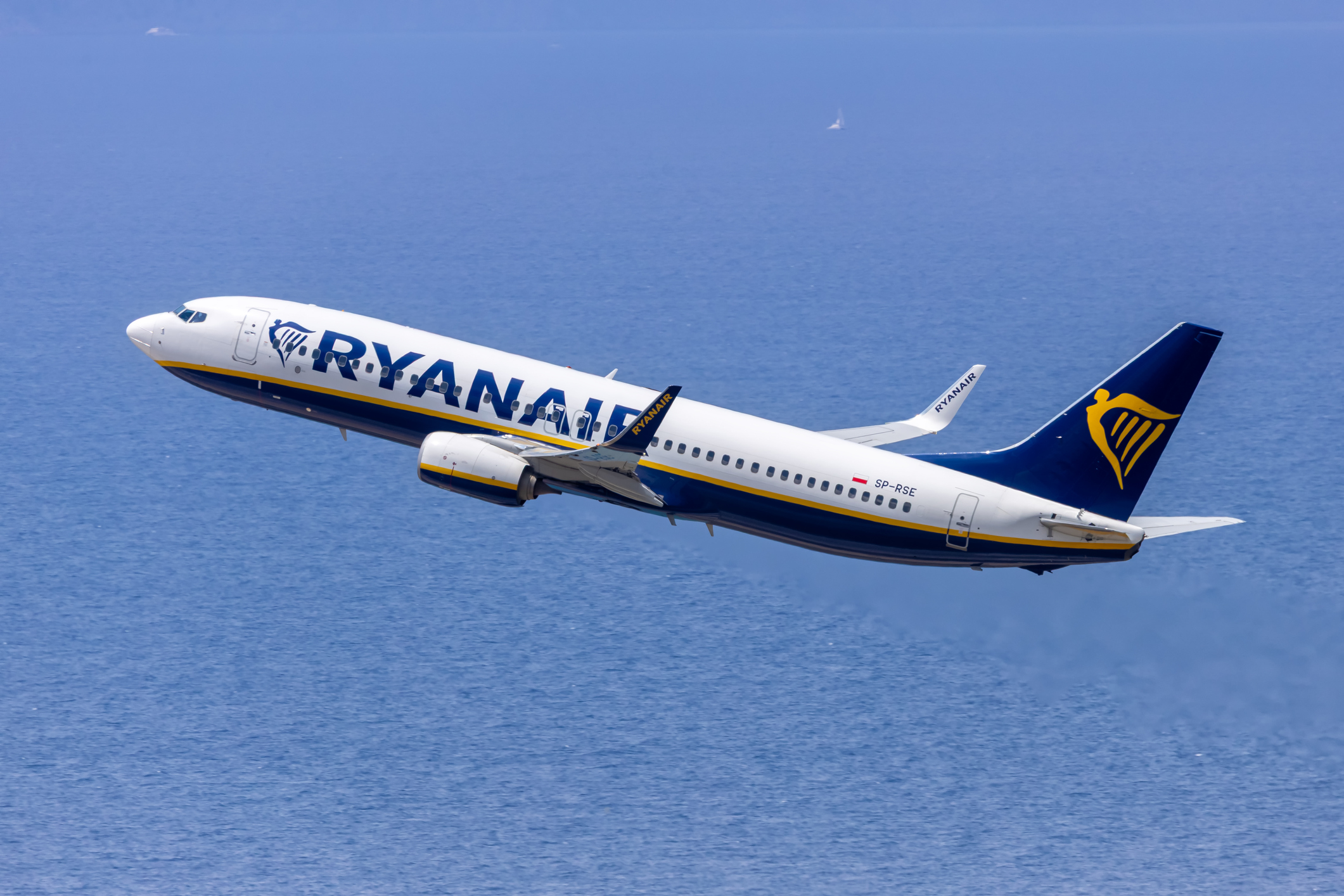Ryanair loses altitude
Europe’s biggest budget airline will profit from rivals’ problems this winter. But it has also been making its own life difficult. Marina Gerner reports.
Get the latest financial news, insights and expert analysis from our award-winning MoneyWeek team, to help you understand what really matters when it comes to your finances.
You are now subscribed
Your newsletter sign-up was successful
Want to add more newsletters?

"We expect more failures this winter," warned Michael O'Leary this week. Ryanair's CEO predicted that some of the Irish airline's smaller airline rivals will go bust. He pointed to a number of recent collapses, including Danish airline Primera Air and Britain's Monarch. That certainly seems "a reasonable bet", says Nils Pratley in The Guardian. Most of the "usual ingredients" for a crisis among small European airlines are in place.
First, oil prices are rising, which means more expensive jet fuel, and many airlines "haven't sufficiently hedged the financial risks". Second, oil is priced in dollars, and the greenback has strengthened amid US interest-rate hikes. And finally, fares are falling thanks to overcapacity in the European airline market. But O'Leary's "prophecy of doom wasn't issued for its own sake". He was trying to get shareholders to look beyond the "noise" of the past few months.
O'Leary's announcement followed an extremely turbulent year for the Dublin-based airline. After a pilot shortage fiasco in 2017, when it had to cancel 20,000 flights, 2018 has seen repeated staff strikes, prompting further flight cancellations, notes Joanna Bourke in the Evening Standard. Coupled with higher fuel costs, this led to profits falling by 7%. In the six months to the end of September, Ryanair earned a net €1.3bn. Passenger numbers rose but fares dropped by 3%.
Try 6 free issues of MoneyWeek today
Get unparalleled financial insight, analysis and expert opinion you can profit from.

Sign up to Money Morning
Don't miss the latest investment and personal finances news, market analysis, plus money-saving tips with our free twice-daily newsletter
Don't miss the latest investment and personal finances news, market analysis, plus money-saving tips with our free twice-daily newsletter
Homegrown problems
"Self-inflicted turbulence" has been the order of the day at Ryanair ever since 2017's "major boo-boo" with the pilot holiday-rota, says Alistair Osborne in The Times. O'Leary has attempted to pin the fall in profits on the "worst summer of air traffic control disruptions on record". While "strike-happy controllers" and "the resulting EU compensation costs didn't help", neither did O'Leary's "run-ins with pilots and cabin crew" all over Europe.
No wonder the shares have fallen by a third in the past 14 months. Still, they ticked up by 4% this week as investors concentrated on the "opportunities in its rivals' misery", says Oliver Gill in The Daily Telegraph. The City sees Ryanair as a high-margin "profit-making machine" likely to be the main beneficiary of further airline failures this winter.
It certainly should do fine in the winter, says Osborne, but "here's the puzzler for investors". Half-year staff costs jumped by a third. How much more of Ryanair's margin will have to be expended on mollifying the workforce and addressing other cost pressures? There was a 35% increase in maintenance and repair costs in the last half too. The fuel bill, despite being hedged, is going up by €460m. Then there's the steady drumbeat of bad publicity to factor in. This week the company was under fire for handling an alleged racist incident poorly. Ryanair should keep in mind that "there's more to an airline than low fares".
Glencore's Glasenberg hard act to follow
Ivan Glasenberg built the mining company Glencore into a dominant force and became the face of the industry. Now he has announced that he plans to retire in three to five years. He said he is training three to four front-runners who could take over from him.
For many investors a Glencore without Glasenberg "had long seemed unthinkable", says Bloomberg. The "brash, workaholic South African" started his career at Glencore three decades ago, and has held the top job since 2002. He is seen as "synonymous" with the company's identity and is its "driving force", agrees Alan Tovey in The Daily Telegraph.
Earlier this year questions were raised about whether the billionaire should continue to lead the company following the announcement that the US Departmentof Justice is looking into bribery and corruption allegations against Glencore. Analysts at Jefferies told The Daily Telegraph they expected the investigations into Glencore's activities in the Democratic Republic of Congo, Nigeria and Venezuela to take up to five years and to loom over the share price in the meantime.
While the commodities giant posted record earnings in the first half of this year, says Reuters, it is now grappling with higher production costs and lower prices for cobalt and other by-products, which undermine profits. In any case, a new Glencore boss could find his or her position at the helm circumscribed by Glasenberg's 8.5% stake in the company. Indeed, as Bloomberg notes, a fifth of the group is controlled by him and a handful of senior managers.
City talk
Fiat Chrysler Automobiles has agreed to sell component maker Magneti Marelli to a rival parts maker owned by private equity group KKR, says Peter Campbell in the Financial Times. The combination with KKR's portfolio firm Calsonic Kansei will create one of the world's largest parts manufacturers, employing around 65,000 people.
The deal comes at a time when the automotive industry is facing structural shifts with the advent of electric and self-driving technologies, and traditional business models are under threat. It's the latest in a series of "buy-and-build" deals by private equity groups, "allowing them to graft synergies and bulk up companies before selling them on".
McDonald's is aiming to make its packaging 100% recyclable worldwide by 2020. In the UK, it aims to replace the 650 million plastic straws it uses each year with paper ones by March 2019. It is now planning to replace plastic drinks lids with biodegradable material. A global seaweed shortage is hampering thelaunch of biodegradable sauce sachets, says Oliver Gill in The Daily Telegraph. Using seaweed means the little packages decompose "as fast as a piece of fruit".
Logistics group Stobart announced first-half results this week, but almost nobody noticed. The City was instead focused on a boardroom bust-up, details of which have emerged from court documents, says Joanna Bourke in the Evening Standard. Stobart is suing former CEO Andrew Tinkler for allegedly trying to damage the business.Tinkler, meanwhile, had tried to oust the current chairman and insists a potential cash bonus for the current CEO was not properly revealed to shareholders.
Get the latest financial news, insights and expert analysis from our award-winning MoneyWeek team, to help you understand what really matters when it comes to your finances.
Marina Gerner is an award-winning journalist and columnist who has written for the Financial Times, the Times Literary Supplement, the Economist, The Guardian and Standpoint magazine in the UK; the New York Observer in the US; and die Bild and Frankfurter Rundschau in Germany.
Marina is also an adjunct professor at the NYU Stern School of Business at their London campus, and has a PhD from the London School of Economics.
Her first book, The Vagina Business, deals with the potential of “femtech” to transform women’s lives, and will be published by Icon Books in September 2024.
Marina is trilingual and lives in London.
-
 Financial education: how to teach children about money
Financial education: how to teach children about moneyFinancial education was added to the national curriculum more than a decade ago, but it doesn’t seem to have done much good. It’s time to take back control
-
 Investing in Taiwan: profit from the rise of Asia’s Silicon Valley
Investing in Taiwan: profit from the rise of Asia’s Silicon ValleyTaiwan has become a technology manufacturing powerhouse. Smart investors should buy in now, says Matthew Partridge
-
 Leading European companies offer long-term growth prospects
Leading European companies offer long-term growth prospectsOpinion Alexander Darwall, lead portfolio manager, European Opportunities Trust, picks three European companies where he'd put his money
-
 Ryanair share price struggles to regain altitude
Ryanair share price struggles to regain altitudeFeatures Ever since Ryanair’s dispute with the pilots’ union in September 2017, the airline has been struggling, with the share price down by half from its peak.
-
 It’s time for Ryanair to grow up
It’s time for Ryanair to grow upOpinion As a young upstart airline, a combative approach was just what Ryanair needed. Now it needs to mellow, says Matthew Lynn.
-
 Low-cost flights hit air pocket
Low-cost flights hit air pocketFeatures A ferocious price war has killed off the weaklings in the airline sector. But the survivors are well placed to thrive. Chris Carter reports.
-
Ryanair: being nice pays off
News Shares in Ryanair have jumped following an overhaul of the airline's customer services.
-
 Ryanair to go on the offensive to reverse a fall in profits
Ryanair to go on the offensive to reverse a fall in profitsFeatures No-frills airline Ryanair has reported its first fall in profits for five years. But it’s hoping a charm offensive will persuade passengers to part with more of their money.